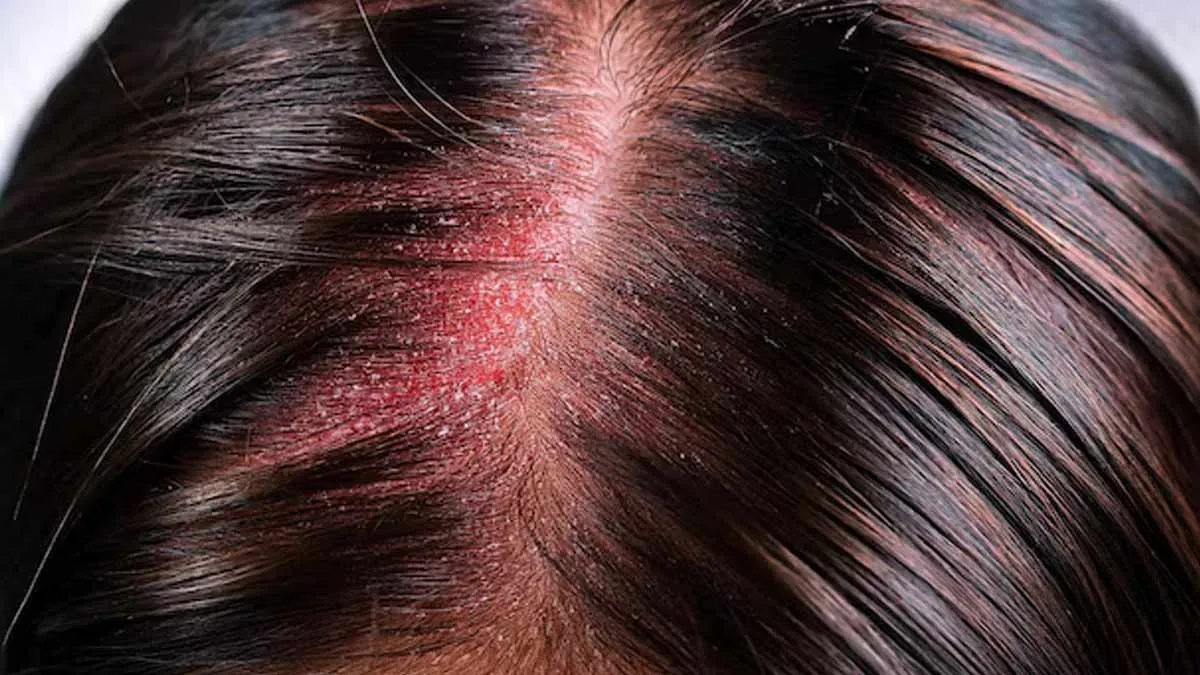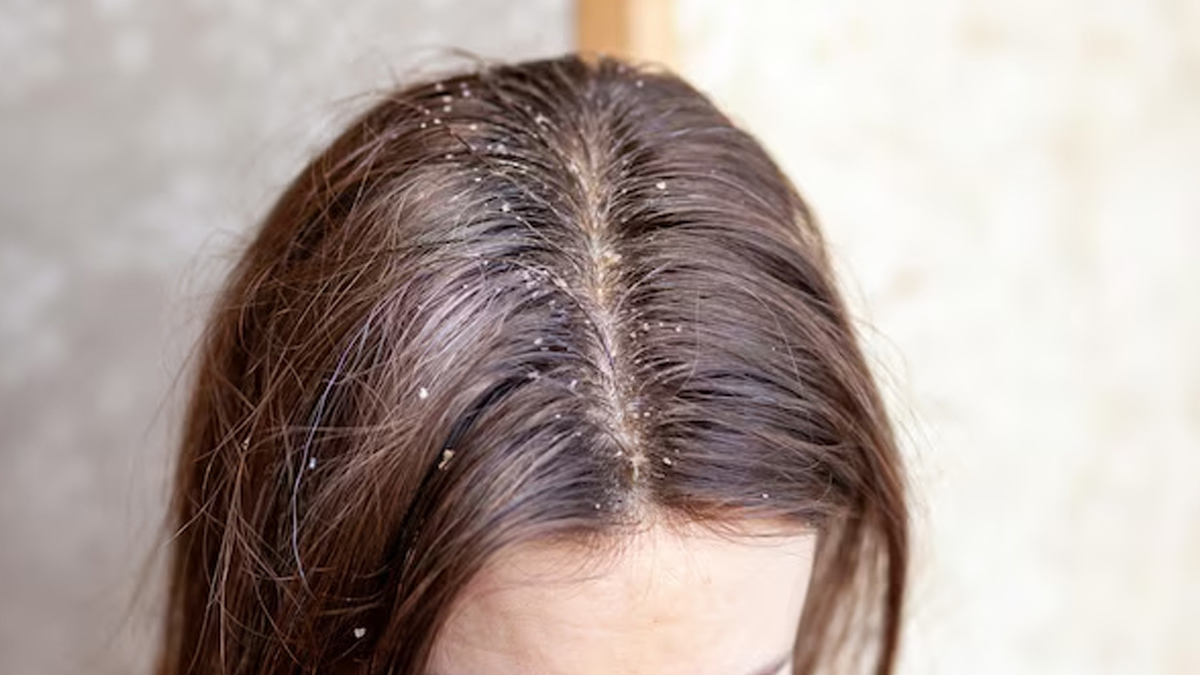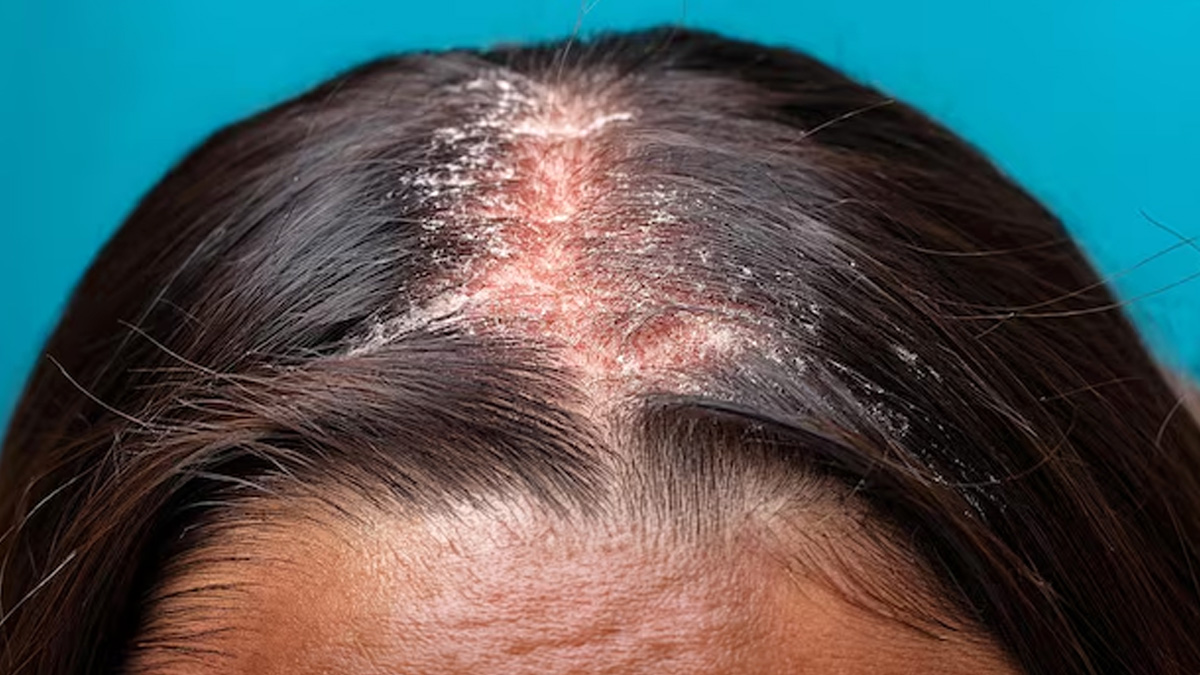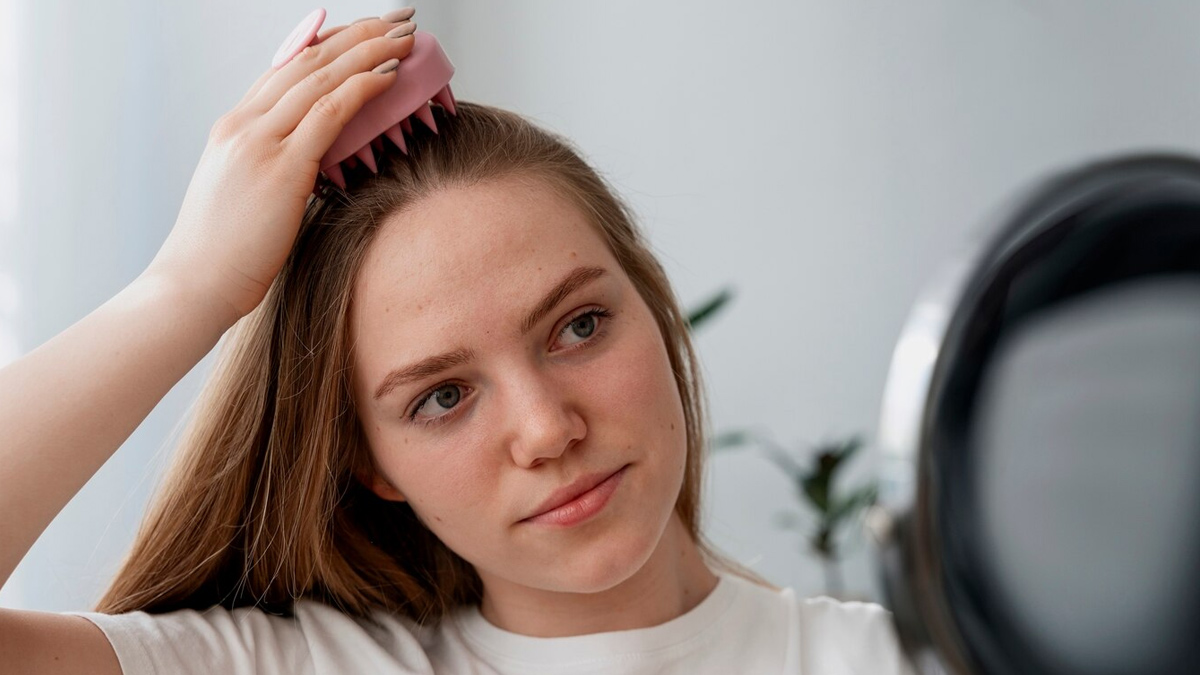
White flakes on your scalp are often a sign of dandruff, which is a common condition that can usually be managed with the right haircare routine. But if you're noticing thick, itchy patches on your scalp, forehead, or even in your hairline, it might be something more serious, such as scalp psoriasis.
Table of Content:-
While scalp psoriasis can be mistaken for a hygiene issue due to its appearance, it’s actually a chronic autoimmune condition and not related to cleanliness at all. Here's what Dr Pawan Singh, Consultant Dermatology, Regency Health, Kanpur, told the OnlyMyHealth team about the many myths and misconceptions surrounding the condition.
Also Read: Could Your Hair Drying Habit Be The Reason Behind Your Dandruff?
What Is Scalp Psoriasis?

Dr Singh described scalp psoriasis as a chronic autoimmune condition where the immune system mistakenly speeds up skin cell production, causing thick, inflamed, and scaly patches on the scalp. He explained, "While dandruff is typically caused by a yeast-like fungus (Malassezia), it mostly causes white, oily flakes. Dandruff comes and goes, while psoriasis is long-lasting and can be much more scaly than flaky. Psoriasis can even spread beyond the scalp to the forehead, neck, or ears or even show up in other areas of the body (such as the elbows or knees)."
According to a study published in the Malaysian Family Physician journal, psoriasis affects approximately 2–3% of the population worldwide, whereas scalp psoriasis affects almost 80% of patients with psoriasis.
Is Scalp Psoriasis A Hygiene Issue?
Many people who do not have much knowledge and awareness around psoriasis believe that the condition highlights a hygiene problem. However, poor hygiene doesn’t cause scalp psoriasis, as it's an autoimmune condition where the body’s immune system attacks healthy skin cells, explained Dr Singh.
That said, not maintaining proper scalp hygiene can worsen the symptoms by increasing irritation, itching, and buildup of scales or oils on already sensitive skin.
“While keeping the scalp clean won’t prevent or cure psoriasis, it can help ease discomfort and support other treatments,” the doctor added.
Other Common Myths About Scalp Psoriasis Debunked

Here are some of the most common myths people believe about scalp psoriasis—along with the truth behind them:
Myth: It's just bad dandruff
Truth: While both cause flaking, scalp psoriasis is an autoimmune condition and often more severe, with thick, scaly patches and inflammation—unlike dandruff, which is usually caused by a fungus.
Myth: It’s contagious
Truth: Psoriasis is not contagious. You can't catch it from touching someone who has it or sharing items like combs or hats.
Myth: It only affects the scalp
Truth: Scalp psoriasis can extend beyond the scalp—to the forehead, neck, or ears—and people often have it on other parts of their body too.
Myth: It will go away on its own
Truth: While flare-ups can come and go, scalp psoriasis usually requires ongoing management. Without treatment, symptoms can worsen or persist.
Myth: Hair loss from scalp psoriasis is permanent
Truth: Hair loss is typically temporary and results from scratching or inflammation. Once the flare-up is controlled, hair often grows back.
Also Read: The Hidden Culprit Behind Dull Hair: How To Recognise And Remove Product Buildup
Management Tips For Scalp Psoriasis

Unfortunately, there isn’t a cure for scalp psoriasis. However, the condition can be managed. “Managing scalp psoriasis at home involves a mix of gentle care, natural remedies, and over-the-counter treatments,” said Dr Singh, sharing that patients can try soothing options like aloe vera creams, coconut oil, oatmeal baths, and medicated shampoos with coal tar or salicylic acid to ease itching and flaking.
Additionally, supplements such as omega-3s, turmeric, or vitamin D may help reduce inflammation, while warm baths with Epsom salt can offer temporary relief.
Some also find added benefit from herbal ingredients like Mahonia aquifolium or tea tree oil, though results vary.
“It's always best to speak with a doctor before starting any new home treatment—especially for more severe cases—to ensure the approach is safe and effective,” the doctor advised.
Conclusion
Living with scalp psoriasis can be frustrating. However, it's important to remember that this condition is not your fault, nor is it a reflection of your hygiene. With the right care, awareness, and medical support, it is possible to manage symptoms and improve quality of life. If you or someone you know is dealing with persistent scalp issues, don’t hesitate to consult a dermatologist. Understanding the condition is the first step towards breaking the myths and feeling more in control of your health.
Also watch this video
How we keep this article up to date:
We work with experts and keep a close eye on the latest in health and wellness. Whenever there is a new research or helpful information, we update our articles with accurate and useful advice.
Current Version